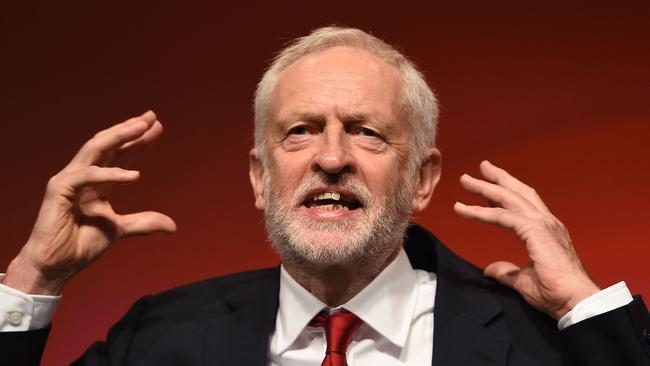
The resignation of seven sitting MPs from the British Labour Party is a dramatic and devastating rebuke to the extremist leadership of Jeremy Corbyn.
It is likely that more MPs will follow them out the door, though such a move historically has been a political suicide march for those MPs who leave major parties.
The seven left the Labour Party ostensibly over two issues.
One is that they want Corbyn to oppose Brexit and seek a second referendum to over turn the first. They are on weak ground here.
The election manifesto they all campaigned on committed Labour to respecting the referendum result and supporting the Brexit decision.
The second reason they gave for leaving, however, was devastating — the complete failure under Corbyn to combat a culture of sustained, abusive, foul anti-Semitism within the party.
Luciana Berger, a Jewish MP among those quitting, said: “I am embarrassed and ashamed to be in the Labour Party.”
Another Jewish MP, who like Berger had suffered astonishing personal anti-Semitic abuse, wept in the meeting of the parliamentary Labour Party which was called to consider the departures.
Corbyn’s deputy, Tom Watson, who is certainly not leaving the party himself, nonetheless said those leaving should not be viewed as traitors and urged Corbyn and the party more broadly to change their culture.
“I love this party but sometimes I no longer recognise it,” Watson said.
It is likely more Labour MPs will follow the magnificent seven, though the situation is extremely fluid.
Their critique has it that the Labour Party is going to the extreme left and the Conservative Party to the extreme Right and they want centrists from both parties to join with them in forming a new political force.
There is a real chance one Tory minister and a small number of Tory backbenchers, who are fiercely opposed to the possibility of leaving the EU with no deal, could join them.
However, the claim that merely supporting Brexit makes a Tory an “extreme Right winger” is foolish and unreasonable.
Nonetheless, the seven Labour dissenters, including the high profile former leadership contender Chuka Umunna, will now become the highest profile backers of a second referendum.
If anything, they heighten the uncertainty and confusion which now characterise British politics. If they do attract some Conservatives, this may finally make it impossible for Theresa May to pass even an anodyne Brexit agreement.
But the biggest loser is Corbyn and the toxic, regressive, crude political culture he has brought to the Labour Party.
Anyone who thinks that sectarian hatreds, foul abuse and ideological extremism are monopolised by the far Right in Western politics need only look at Corbyn and his extremely unlovely cadre of close supporters.
The peculiar method for choosing a national leader which Labour embraced, allowing anyone who pays three pounds to have a vote for the leadership even if they’ve never been associated with the Labour Party, has effectively seen the once great party pass for the first time into the hands of the successors of the old British Communist Party.
It is now inherently a Marxist/Leninist culture which Corbyn has foisted on British Labour, with all the banality of contemporary cluelessness added and the magnified hatreds of the social media trope of the endless angry adolescent, even as many of these adolescents are becoming middle aged.
May’s Government is in such a mess, has handled Brexit so badly and is so bitterly divided internally that an opposition with an IQ above room temperature should be 25 points ahead in the polls.
The shabby dross of eccentric celebrity has so far shielded Corbyn from proper scrutiny. His parliamentary colleagues, who know him best, have always hated his leadership. As the public confronts the frightening prospect of Corbyn as PM they are, if belatedly, also becoming alarmed.
Not since Labour dissidents split in 1981 to form the Social Democratic Party has British politics seemed so unstable.
Though the system overwhelmingly favours the established parties, a more fundamental realignment of British politics is a growing possibility.




